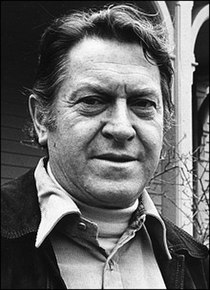Leon Kirchner
| Leon Kirchner | |
|---|---|
 |
|
| Born |
January 24, 1919 Brooklyn, New York, USA |
| Died | September 17, 2009 (aged 90) Central Park West, New York City, USA |
| Nationality | American |
| Occupation | Composer |
| Spouse(s) | Gertrude Schoenberg (1949–1999) |
| Children | 2 |
Leon Kirchner (January 24, 1919 – September 17, 2009) was an American composer of contemporary classical music. He was a member of the American Academy of Arts and Letters and the American Academy of Arts and Sciences, and he won a Pulitzer Prize for his String Quartet No. 3.
Kirchner was born in Brooklyn, New York. He began his music studies at the age of four. Five years later, his family moved to Los Angeles. He began composing while a student at Los Angeles City College. With the encouragement of his piano teachers and , he entered the University of California, Los Angeles to study with Arnold Schoenberg. Kirchner began graduate studies at the University of California, Berkeley and was awarded the George Ladd Prix de Paris in 1942. As World War II put Europe in turmoil, he went to New York and studied with Roger Sessions. At the war's end, he returned to Berkeley as a lecturer and assisted Sessions and Ernest Bloch in theory.
Kirchner held a Slee Professiorship at the University of Buffalo (succeeding Aaron Copland), and professorships at the University of California, University of Southern California, Yale University, the Juilliard School of Music, and Mills College, where he was the first Luther Brusie Marchant Professor from 1954 to 1961. In 1961 he succeeded Walter Piston at Harvard University, where he was named Walter Bigelow Rosen Professor of Music in 1965 and taught until 1989. He won the annual Pulitzer Prize for Music in 1967 for Quartet No. 3.
...
Wikipedia
